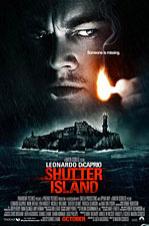
An over the top, entertaining dramedy, a thrilling exercise in Grand Guignol
film from a queer perspective
Reviews
| KATM media outlets |
| KATM featured weekly |
| Join Us! |
| KATM on RT |
| Vidcast Starring KATM |
| NOTE: THIS SITE ONLY LOADS CORRECTLY WITH EXPLORER AND MOZILLA BROWSERS - SORRY SAFARI USERS! |
| Buy the KATM Book |
Excess Baggage:
Happy Tears-Shutter Island
Expanded Edition of 2-17-10 WCT Knight at the Movies column
By Richard Knight, Jr.
Happy Tears-Shutter Island
Expanded Edition of 2-17-10 WCT Knight at the Movies column
By Richard Knight, Jr.
| Nobody plays neurotic like Parker Posey, poster girl for urban characters caught up in a maelstrom of anxiety and comic madness. And in out writer-producer-director Mitchell Lichtenstein’s sophomore directorial effort, Happy Tears, she has what might just be her most neurotic yet. The movie is an all too familiar dramedy of family dysfunction in which two sisters (Parker and Demi Moore) must deal with their father who is slipping into dementia (played by Rip Torn no less). It’s filled with moments as maddening yet endearing as Parker’s character. Lichtenstein’s over the top movie is about a million miles away from the hyper realism of mumblecore (and about ten million miles from his debut film, the graphic horror comedy Teeth). But this to my way of thinking is a plus rather than a liability and Lichtenstein’s situations and dialogue, proverbial though lyrical, give the actors a lot to work with, and the lively performances he elicits from his cast elevates the film and gives it some extra oomph. Unlike The Savages, another recent movie in which siblings deal with an aging parent and Sunshine Cleaning, a film that focused on the fractious relationship between two warring sisters, you don’t necessarily believe these are real folks but boy they sure are entertaining. At the outset, we meet Laura (Moore) who has flown back from her home in San Francisco to Pittsburgh to deal with her widowed father (Torn) who is quickly slipping into senility. She’s anxiously awaiting the arrival of Jayne (Posey), also a San Franciscan, who is supposed to relieve her. Within seconds during the initial phone conversation between the two we get that Laura is the no-nonsense realist who has paid a lot of dues in life (including a decision to stay with her probably gay husband) while Jayne is the wacky, petulant one, subject to mood swings (to say the least). Jayne has married into money and can indulge her whims (like those for a pair of expensive designer boots that a snooty salesman assures her are dark blue not black). Her husband is the son of a deceased, well known artist who is slowly having a breakdown of his own and doesn’t pay her much attention. When Jayne arrives, naturally, all hell breaks loose. There’s the cantankerous, beer swilling, diaper wearing father who insists that his new “girlfriend” (Ellen Barkin, in a fearless performance) who pretends to be a nurse and is closer to a meth addict, be treated with respect. But the sisters – especially Jayne can’t abide the fact that she’s helped herself to mother’s fur coat and her jewelry. As Jayne and Laura figure out what to do with dad, old wounds are opened, memories, hurts and joys are experienced, a search for a long buried treasure in the backyard commences, a hot afternoon is spent between Jayne and a hunky blonde teenager (played by soap opera hunk Billy Magnussen), and though Laura says to Jayne at one point in exasperation, “Gee, it must be a happy place inside that brain of yours,” we learn, naturally, that the familial bonds are strong and unyielding and that when all is said and done the sisters will always be as close as the pages in a book. Parker is one of those actors that unsettles – she fascinates because you never quite know what she's going to do next. She doesn’t hesitate to go off the deep end emotionally and the part of Jayne offers her repeated opportunities to do so. Moore holds her own, pulling in her natural tendency to go big and Torn, also fearless, matches the two. Happy Tears is a movie we’re likely to see variations on many times in the ensuing years – this theme of caring for our parents now that we Baby Boomers are moving into our emeritus years – and Lichtenstein, with his sure sense for black comedy and with the fun, deft performances of his cast, has written and directed one that will stack up nicely against the overflow of these other movies as they arrive. +++++++++++++++++++++++++++++++++++++++++++++++++++++++++++++++++++++++ Could there be any creepier setting for a movie than a madhouse for the criminally insane located on a remote island during a raging storm circa the late 40s-early 50s, the era of electroshock, lobotomies and other gruesome therapies for the mentally ill? That’s the setting for Shutter Island, the fourth teaming between director Martin Scorsese and Leonardo DiCaprio. Leo plays Teddy Daniels, a Federal Marshall trying to locate a missing patient at the mysterious Ashcliffe Hospital for the criminally insane. Teddy and his partner Chuck (Mark Ruffalo) try to break through the wall of secrets that the staff (headed by Ben Kingsley and Max von Sydow) seems to be hiding. Due to the bad weather, the duo is forced to stay on the island. Asleep at night Teddy has spectacularly vivid nightmares of a wife (a hauntingly effective Michelle Williams) who burned up in a fire while he was away in WWII helping to free the Jewish concentration camp victims at Dachau. And those memories (including a quick nod to The Red Shoes) also give him lots and lots of nightmarish dreams (no surprise there). The story, with its slew of insane inmate characters, surly guards, nasty nurses, cultured mad doctors, etc. offers a lot of opportunities for actors to get their crazy faces on and Scorsese has the budget to hire some of the best – Kingsley and Von Sydow are joined by Patricia Clarkson, Emily Mortimer, Ted Levine, Jackie Earle Haley, Elias Koteas, etc. – ratcheting up the over the top scenario and the ominous mis en scene nearly into Mel Brooks/High Anxiety territory. At times, the atmosphere is so thick one almost expects Cloris Leachman as Nurse Diesel to come stomping out of the dark in her Nazi uniform. But though the movie threatens, it never descends to camp for more than a second or two. Like the Scorsese of Cape Fear, this Grand Guignol approach is a risk that pays off. One is always aware you’re watching a movie – a Hitchcock inspired paranoid thriller/ghost story so melodramatic and operatic in tone one can almost hear the arias during the flurry of memorable set pieces (and the music on the soundtrack – atonal, chilly selections of 20th Century Classical compositions chosen by Robbie Robertson – certainly help). At one point, DiCaprio even delivers a monologue while he and his partner are stuck in a crypt as the storm rages outside. Based on the novel by Dennis Lehane, the movie is weighty with metaphor and Scorsese piles more on top of them and the results are thrilling to watch. But even though there’s not a hint of realism here the acting is very affecting and the performance of DiCaprio is quite moving. “You’re a rat in a maze,” Jackie Earle Haley tells DiCaprio’s Teddy at one point but the real rats, of course, are the audience, locked in the Kafkaesque universe that Scorsese and his collaborators have exactingly created down to the last detail. Shutter Island is an enthralling, big budget mélange of classic Hitchcock and film noir – packaged with Scorsese’s gift for large scale visuals and DiCaprio’s gifted performance. |




